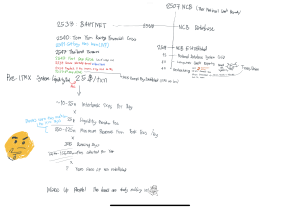Bank Fees
"Breaking Down Bank Fees: The Ongoing Thai Savings Account Irony"
In the kingdom of Thailand, where traditions blend seamlessly with modernity, there exists a financial quirk that even the savviest of savers may find perplexing - the peculiar world of Thai savings accounts. Unlike their Western counterparts, Thai savings accounts operate more like checking accounts, but with a twist that's a tad more twisty than your favorite Thai dish.
Picture this: Your hard-earned cash sits comfortably in a Thai savings account, ready for your everyday expenses. But before you celebrate your financial foresight, there's a catch as tricky as navigating Bangkok's traffic jams. While you may earn a modest interest rate, typically around 0.5%, you'll also face an annual fee. A fee that might seem quite harmless at first glance, but when you do the math, it's an entirely different story.
Let's break it down.
In the Land of Smiles, there are approximately 120.83 million savings accounts, each one meant to house your money safely. However, these accounts can be deceptive. They're often linked to debit cards and used for daily transactions, rendering them closer in function to checking accounts. But here's the kicker: it's a service that often comes at a price.
For the privilege of holding your cash, the bank may happily deduct 250 Baht per account each year, linked to your trusty debit card. Sounds like chump change, right? Well, not when you consider that some accounts are barely making 0.5% in interest. So, let's take a closer look at the numbers.
- Accounts with deposits over 50,000 but less than 100,000 Baht: 4.14 million accounts, with a total balance of 292,418 million Baht.
- Accounts with deposits of less than 50,000 Baht: A staggering 106.62 million accounts, totaling 436,161 million Baht.
Now, do the math. If each of these 120.83 million accounts were to be levied 250 Baht, the grand total would be enough to make Scrooge McDuck blush. It's like taking candy from a baby, if that candy were replaced with your hard-earned money.
All this while the interest paid to account holders might be just enough to buy you a modest meal in a local eatery – around 25 Baht. The irony couldn't be starker. People diligently save up, hoping to protect their money from inflation's grip, only to have their savings whittled away by the banks' fee structures. And let's not even get started on the interest charges from credit cards and various loans that can hit you where it hurts the most – your wallet.
In a country where saving should be a step towards financial security, it seems the Thai people are stuck in a slow leak of their funds. The system appears designed to bleed the masses slowly, using bank fees as the weapon of choice. It's a silent financial robbery, occurring right under our noses. Saving alone is no longer enough to battle inflation, especially when you're getting hit by banking fees that act like stealthy pickpockets on your wealth.
The moral of the story? In the realm of Thai banking, where savings accounts masquerade as everyday heroes, don't be surprised if you find that your hero is, in fact, the villain in disguise. The battle between you and your bank fees may not be an epic saga, but it's one you should be aware of as you navigate the intriguing world of Thai finance.
Account Inactivity Fees
The terms: If your account has less than 2,000 baht or cash equivalent, the bank may charge 50 baht per month fee until balance reaches zero we will close your account. Me: Transfer 1 Baht every 5 months Bankers: 🙀
Monthly Maintenance Fees
The Hidden Costs of Modern Life: A Tax on Existence
In today's world, the simple act of living has become increasingly expensive. Beyond the obvious costs of housing, food, and transportation, there's a myriad of hidden fees and charges that chip away at our financial well-being. It's as if we're constantly paying a tax on existence.
The Financial Shackles of Modern Life
One of the most significant burdens is the cost of housing. As housing prices continue to soar, renting or buying a home has become a significant financial challenge, especially for younger generations. Landlords, often backed by corporate entities, capitalize on this demand, charging exorbitant rents and fees.
Financial institutions, too, have found innovative ways to extract value from their customers. From overdraft fees to annual maintenance charges, these hidden costs can quickly erode savings. The increasing complexity of financial products and services, coupled with aggressive marketing tactics, can further complicate matters.
The digital age, while offering numerous benefits, has also introduced new avenues for revenue generation. Streaming services, cloud storage, and online gaming platforms all require subscriptions, often with additional fees for premium features. Even basic internet access can be costly, with providers imposing data caps and overage charges.
The Illusion of Choice
In a world dominated by corporations, consumers often have limited choices. The illusion of competition is maintained through subtle tactics, such as product differentiation and branding. However, the underlying economic structures remain largely unchanged, allowing corporations to maintain high profit margins.
To navigate this complex landscape, it's essential to be a savvy consumer. By carefully scrutinizing bills, avoiding unnecessary expenses, and advocating for fair pricing, we can challenge the status quo and demand a more equitable system.
